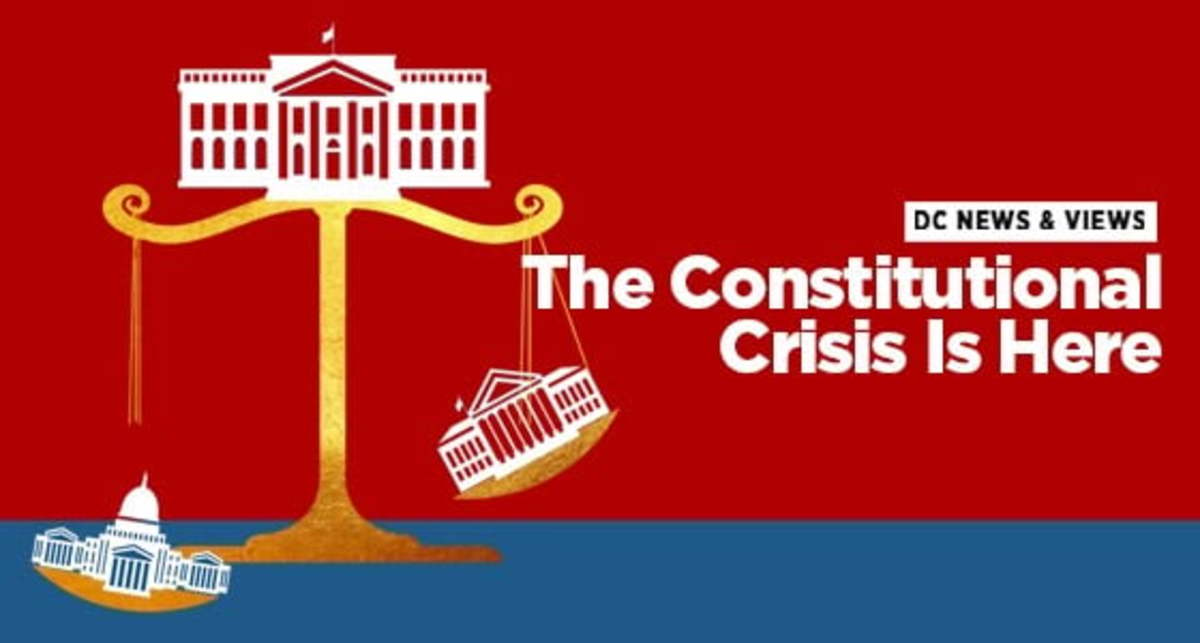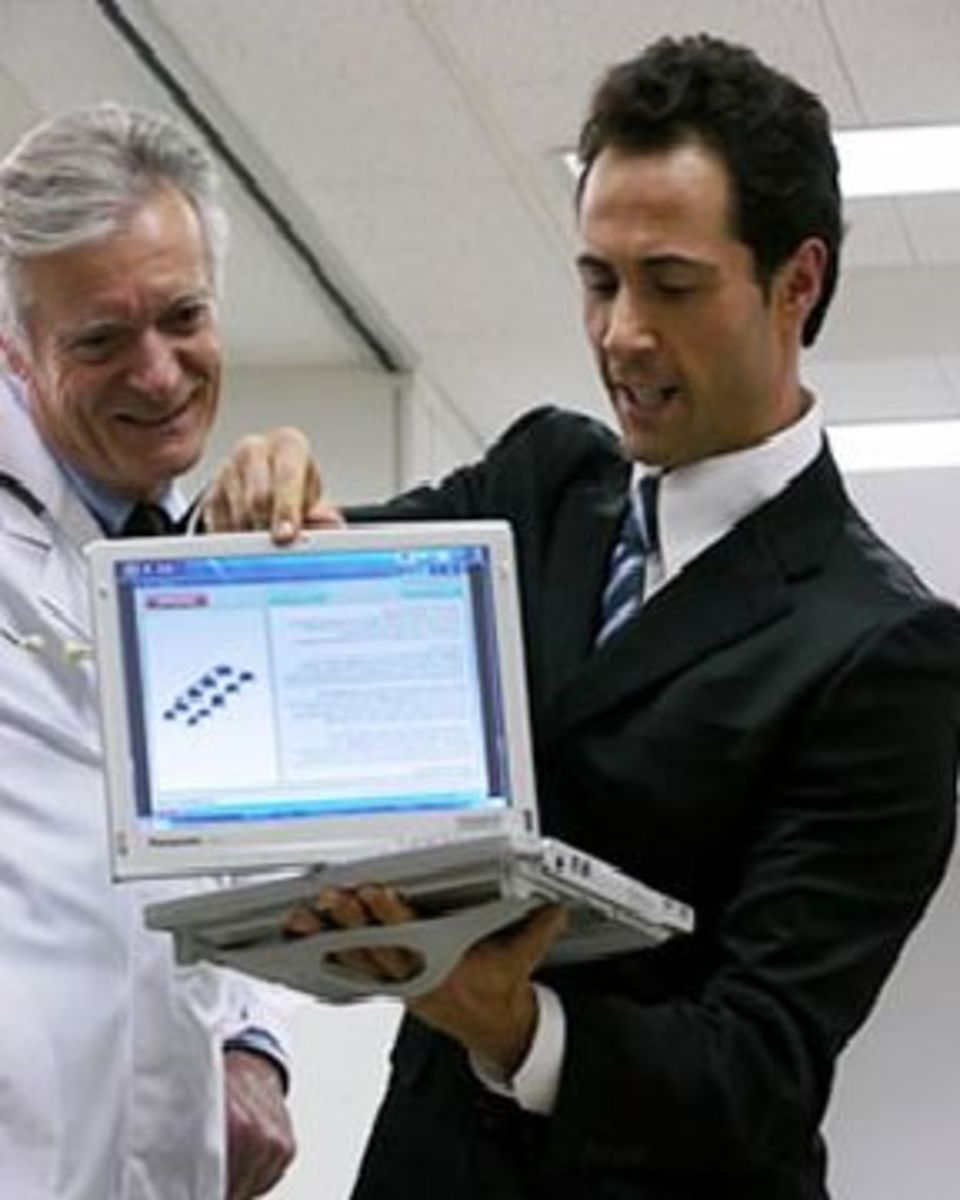Who Holds The Power in Washington? and a Poll
SOURCE: http://weblogs.newsday.com/news/local/longisland/politics/blog/george-w-bush-picture.jpg

Do you think the President has 'True Power' in Washington?
The President of the United States is Powerful?
Please take the POLL ABOVE before reading this article.
Did you select a response in the poll above? Thank you!
I am curious to see how many Americans believe that the President of the United States holds any real power?
During my school years, the Presidential race always revealed heated passions among my classmates, at recess or at lunchtime.
At the time of the John F. Kennedy election, everyone talked about the Presidential race, and very little discussion was centered on either, Federal Judges or Senators and Congress-persons. I was always interested in what elected officials and lawmakers (other than the President), actually did back there in Washington besides:
1. Hold meetings
2. Create new legislation and laws
3. Discuss policies
4. Collect a salary whether they were correct or not
Question: Do you know where the real power resides in Washington DC?
You may be surprised to discover that it does not reside solely with the President. Every Senator and member of the House of Representatives has one vote, for each item on that day's agenda.
Now prior to the floor vote, a collection of Democrats and Republicans can meet in committees, and discuss the bill or amendement and how they might prefer to vote.
Question: Do you ever see or care about the results of their votes?
Answer: If you watch tv you may be able to see the voting, but it takes a long time to capture and distribute the results.
Even if you were to email or mail a letter to your representative, it is unlikely they read each piece of mail, but delegate these tasks to their staff members. So it is unlikely that your desires are ever communicated to your representative in time to affect their vote on an issue.
Question: Do you know how long i.e. how many pages long, many of the bills before the Senate and House are?
Answer: Most bills are fifty pages to one hundred pages or more!
Question: Do you believe that your Senator or Congress-person has the time to read each one, and discuss the ramifications of a yea or nay vote?
I can tell you this, it is highly unlikely that anyone in those two branches of government, really know what they are voting for!
The title of the bill, and the opening statement are sufficient for many of them. Or they defer reading it in it's entirety, and leave this task to other lawyers to decode.
Question: How effective is the bill's author's, 'selling' of the proposed bill during floor discussion and statements?
Answer: For newly elected representatives, they may very well side with a more 'experienced' peer in the House or Senate, if they do not understand this bill sufficiently.
Question: Are the 'old school' Senators to be trusted with determining the efficacy of a bill or law? Do they have any more grasp of the subject matter, and the effects of this law and it's enforcement and costs over time?
Answer: If you read the sample ballots, mnay times the statement appears, " we cannot determine the anticipated economic cost of this act at this time".
How are our representatives to vote intelligently on anything if they do not know the cost committments?
After hearing from a collegue who attends Congressional Hearings and Senate sessions on a weekly basis I do not have encouraging news.
It appears from all of the research done on voting in the US Government, that no one truly understands what they are truly voting for anymore, if they ever did !!!
This will shock and surprise many Americans who believe that there must be some kind of "Senator-school" or "Congress-school", that prepares our elected official's for voting on bills or amendments. The only school most of these people attended was 'Law School'.
If law school was all you needed to vote intelligently, thsi article would no need to be written! The complex nature of our current political, social and financial environment in the USA requires some very smart and broad-based people making laws that will work, and not depend on 'guess-work' or supposition in making laws.
If the current House and Senate were given a test on basic financial investment techniques, or saving-money strategies, I do not believe many would have a successful grade after scoring!
Question: Do you believe that the average American would do any better?
Answer: You know this one already...NO!
Balancing their checkbooks is an activity that most people actively avoid, even if it benefits knowing how much money remains in the account. Furthermore, it helps to track your expenditures, and might help an individual to budget more carefully!
Balancing a national budget must be impossible to understand and decide which Federal programs have merit, and which should be cut?
The truth of the matter is that our elected officials often vote on bills and they cannot tell you who, what, where, how, or why they have selected a yea or nay vote! This is disturbing no doubt to the select few citizens who dig a little deeper to see the effects, long-term on the American People and American Business.
If you liked this article, please leave me a comment! I will respond!
Respectfully, Nicholas Chase








